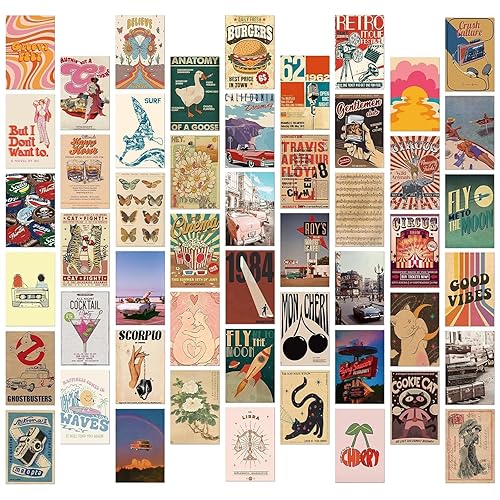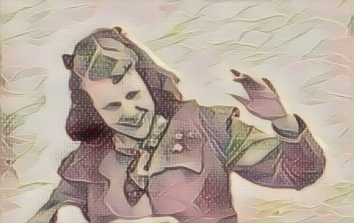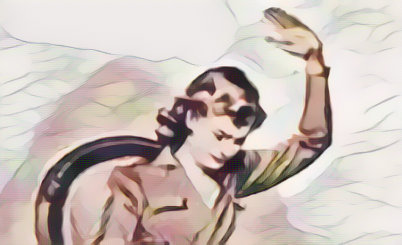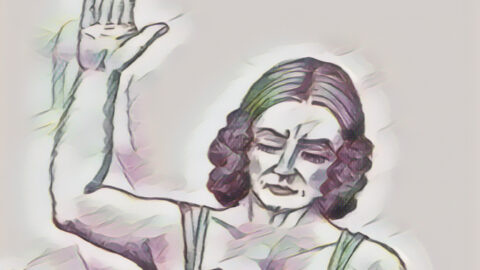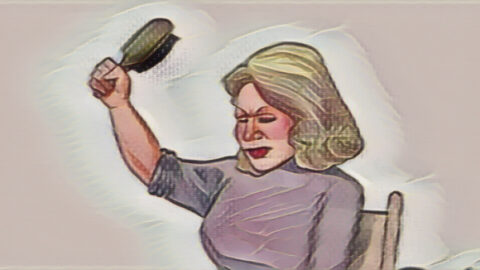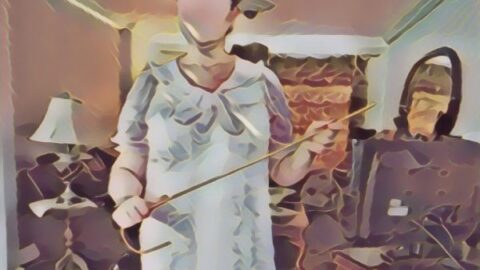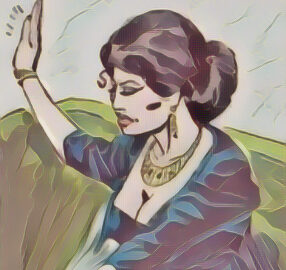(gap: 2s) In the summers of my childhood, the world was a place of peculiar wonders and secret rules, as if the sun itself had conspired with the grown-ups to create a kingdom of both delight and discipline. Our village, with its winding lanes and hedges bristling with wild roses, was the stage for Peter, John, Susan, Margaret, and myself. We would rise at dawn, the air filled with the scent of cut grass and the distant clink of milk bottles, and dash outside, our pockets bulging with marbles, conkers, and the occasional toffee filched from the pantry.
(short pause) Afternoons were reserved for plunging into the river, the water cool and brown, swirling about our ankles as we dared one another to leap from the rope swing. We would dry ourselves on the bank, gazing up at the clouds and debating whether that one resembled a steam train or a dragon. There were games of cowboys and Indians, with Peter always insisting on being the sheriff, and forts constructed from battered crates and moth-eaten blankets. The air was thick with the scent of honeysuckle and the distant promise of Mrs. Thompson’s tart lemonade.
(pause) Mischief was our constant companion, but it was a gentle, almost innocent sort—nothing more sinister than a frog in Margaret’s satchel or a daring foray into the orchard for apples that were not quite ripe. Compared to the tribulations children face today, our escapades were as harmless as the stories we read by torchlight beneath the covers.
(pause) Yet, among our many fascinations, there was one that stood out for its curious blend of dread and intrigue: the spectacle of a spanking. In our village, a spanking was not merely a punishment; it was a grand performance, a moral lesson delivered with all the ceremony of a royal decree. Whenever word spread that a child was to be disciplined, we would gather like secret agents, lurking near the house or beneath an open window, our hearts thumping with a mixture of fear and anticipation. Sometimes, we would crouch behind the hedge, the privet prickling our knees, or press ourselves against the old oak tree, straining to catch every sound.
(pause) On the rarest of occasions, the discipline would take place outdoors, and we would be summoned—sometimes even commanded—to observe. I recall one such afternoon, the sun blazing down on Mrs. Thompson’s back garden, when she called us all to stand by as she corrected Peter’s latest mischief. “Let this be a lesson to you all,” she declared, her voice as crisp as her starched apron. We stood in a solemn row, hands clasped behind our backs, trying not to meet Peter’s eye, for we knew what was to come.
(pause) The adults, I believe, thought that the added embarrassment of an audience would drive the lesson home, and indeed, it made us all more mindful of our own conduct. Occasionally, Mrs. Thompson or Mr. Harris would turn to us, eyes twinkling with a peculiar mixture of sternness and amusement, and ask, “Does anyone else require a reminder?” We would chorus, “No, madam!” and scatter like startled birds, eager to avoid the fate of the unfortunate culprit.
(pause) If we were eavesdropping in secret, we had to be especially careful. Discovery meant we might find ourselves in the same predicament as poor John or Mary, and none of us wished for that. I remember one afternoon when Susan, emboldened by curiosity, crept too close to the kitchen window and was caught by Mrs. Harris. The look on her face as she was marched inside was enough to keep the rest of us at a safe distance for weeks.
(pause) There was always a mixture of nervous giggles and anxious glances exchanged among us. If we did not know the child or their family well, we would speculate in hushed tones about the method of discipline. Would it be the hand, the slipper, or perhaps the dreaded wooden spoon? In those days, nearly every punishment was delivered to the seat of the trousers, and each implement had its own unmistakable sound—a sort of code we became experts at deciphering.
(pause) We became quite skilled at identifying the implement by ear. The hairbrush, for instance, produced a sharp, resounding crack, especially when applied to bare skin. The cries that followed were unmistakable—loud, heartfelt, and impossible to ignore. I remember how Susan would wince and cover her ears when the sound echoed through the summer air, while Margaret would bite her lip and stare at her shoes.
(pause) The wooden spoon, by contrast, made a distinct popping noise, while the leather strap had a fearsome swish, followed by a thunderous report as it landed. The resulting wails from Peter or John were enough to make even the bravest among us shudder. Once, after a particularly memorable incident involving a broken window and a cricket ball, Peter emerged from his house with red-rimmed eyes and a new respect for the family strap.
(pause) But the most unforgettable of all was the switch. The memory of that day is etched in my mind with a clarity that time cannot dim. It was a sweltering afternoon, the kind where the air itself seemed to shimmer, and the garden was alive with the hum of bees and the distant laughter of children. John’s father, Mr. Harris, stood tall and stern beneath the pear tree, a freshly cut switch in his hand—thin, green, and wickedly supple. We watched, breathless, as John was summoned forward, his face pale but determined, a stubborn set to his jaw that betrayed both fear and pride.
(pause) The anticipation was a living thing, thick and electric. We stood in a silent semicircle, the grass cool beneath our bare feet, our hands clammy with nervousness. The switch made a faint, almost musical whistle as Mr. Harris tested it in the air—a sound that sent a shiver down my spine. John’s eyes flickered to us, searching for comfort, but none of us dared to meet his gaze. Even Peter, usually so bold, looked away, his cheeks flushed.
(pause) Then, with a single, deliberate motion, Mr. Harris brought the switch down. The “thwack” was sharp and clean, slicing through the summer stillness. John gasped, his shoulders jerking, but he did not cry out—not at first. The second stroke landed, and then the third, each one leaving a thin, angry welt across the backs of his legs. By the fourth, John’s composure broke; a strangled sob escaped him, raw and honest, and the rest of us flinched as if struck ourselves.
(pause) The emotional weight of the moment pressed down on us all. Susan’s eyes filled with tears, and she clutched Margaret’s hand so tightly her knuckles turned white. Margaret, always the most sensitive, bit her lip until it bled, her gaze fixed on the ground. Even the adults seemed subdued—Mr. Harris’s face was grim, but there was a flicker of regret in his eyes as he finished the punishment. The switch, now stripped of its menace, dangled limply from his hand.
(pause) When it was over, John stood trembling, his breath coming in ragged gulps. The marks on his legs were vivid, red and swelling, a testament to both his ordeal and his courage. For weeks afterward, he would show them off in secret, lifting his shorts to reveal the fading stripes to those of us who dared to look. There was a strange pride in his voice, mingled with a hint of defiance, as if he had survived some ancient rite of passage.
(pause) The rest of us were left shaken, our usual bravado replaced by a quiet solidarity. We gathered around John, offering awkward words of comfort and silent pats on the back. The experience bound us together in a way nothing else could—a shared memory of pain, fear, and, ultimately, resilience. Even now, I can recall the way the sunlight glinted off the pear leaves, the scent of cut grass heavy in the air, and the unspoken promise that we would always stand by one another, no matter what.
(pause) It was always fascinating to observe the reactions of the other children. At first, there was a sense of excitement and amusement, tinged with apprehension. But as the punishment continued and the cries grew more desperate, those feelings gave way to compassion and understanding. We all knew, from our own experiences, just how much it hurt. Sometimes, the bravest among us would try to distract the adults, feigning a sudden need for water or inventing an urgent message from the vicar, but such ploys rarely succeeded.
(pause) Sometimes, the sounds became too much for some of us, and Margaret or Susan would slip away before the ordeal was over, unable to bear the distress of another’s suffering. I remember once finding Margaret behind the tool shed, dabbing her eyes with the hem of her dress, insisting she had something in her eye.
(pause) Yet, despite these memories, I look back on those golden summers with great affection. For me, and for Peter, John, Susan, and Margaret, those were truly idyllic days—filled with friendship, adventure, and the lessons that shaped our lives. The world was smaller then, and safer, and every scrape and scolding was part of the tapestry of growing up. Even now, the scent of cut grass or the distant sound of children’s laughter can transport me back to those sunlit afternoons, when the greatest worry in the world was whether we would be home in time for tea.








